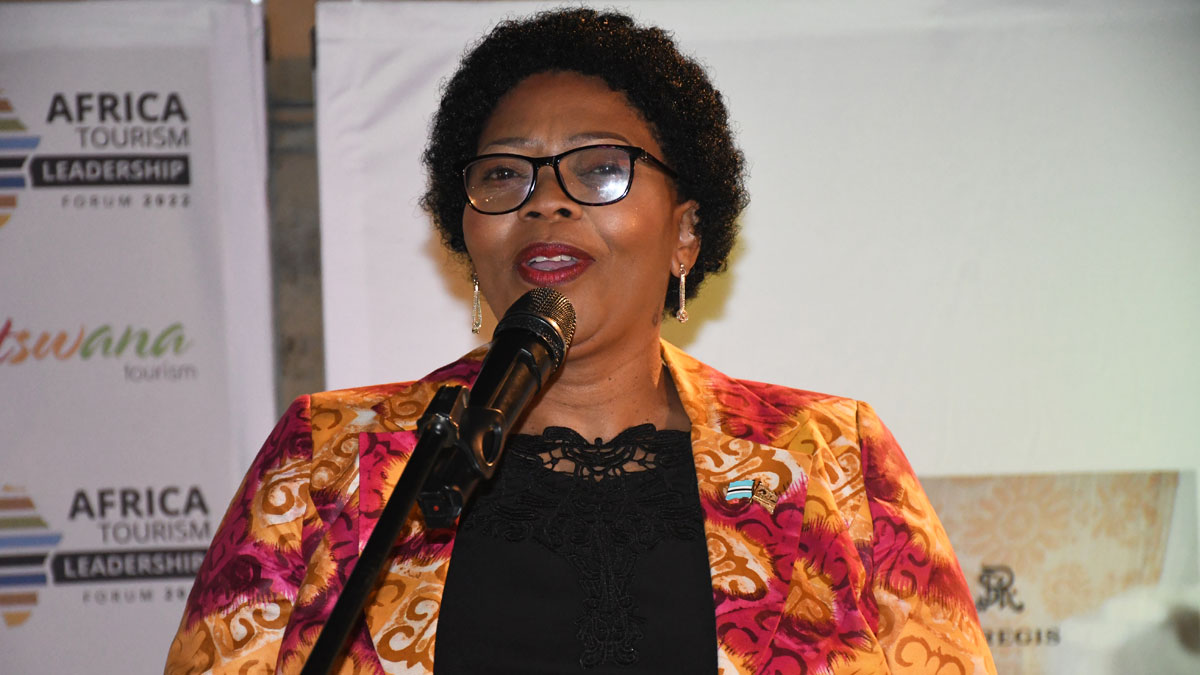Botswana has successfully lobbied the Convention on Endangered Species of Fauna and Wildlife (CITES) not to ban trophy hunting in the country.
Alongside other countries in the SADC region with the support of the European Union, Botswana voted against the ban, which would have been introduced if member states had voted for moving elephants from appendix II to appendix I of CITES regulations because animals listed under Appendix I are classified as most endangered and cannot be hunted in order to safeguard the species from extinction.
On Friday last week, an African country, Burkina Faso tabled a motion calling for all African elephants currently located in appendix II to be transferred to appendix I but lost with 44 votes to 59 that opposed the motion and 13 abstaining. Congo Botswana, EU, Tanzania, Eswatini, Zimbabwe, Japan, Rwanda, Zambia, Namibia, Indonesia, Eritra, Uganda and Malawi voted against the motion.
Prior to Cop 27 meeting, Botswana and other countries within the SADC region had vigorously campaigned against the ban, which they argued would spell doom to communities co-existing with these giants and surviving through tourism.
The Minister responsible for Tourism and Environment, Phildah Kereng skipped Parliament last week to form a pact with other SADC member states in lobbying other CITES member states that conservation in Botswana is not only about wildlife, but rather human life as well and that it was through indigenous knowledge and practices to manage wildlife, that the country has managed to conserve a large population of elephants.
“Rural people depend on these natural resources for their livelihoods; having access to these resources and using their knowledge to manage these resources is important,” Kereng explained during a press conference in Panama, just two days before tabling of the motion.
“The people do not call for total removal of elephants, they call for benefits through hunting quotas. Our communities derive revenues through CBNRM projects, gain skills, develop alternative income projects and this improves the quality of life, provide jobs, give people a voice and they become a united force for conservation, organise themselves to combat human-wildlife conflict and improve co-existence, fighting poaching and preventing wildlife crime,” said Kereng
The press conference was hosted by community leaders network of Southern Africa to mobilise the parties and other participants for a side event, which according to Botswana representatives at the event, was eventually held under the theme, Respect Rural Communities and their Livelihoods.
The discussions revolved around COP 19 document which was submitted by Eswatini, Namibia and Zimbabwe, and another one submitted by Botswana, Cambodia, Eswatini, Namibia and Zimbabwe regarding wildlife conservation and management policies.
Panelists included Zimbabwe’s minister of Environment , Climate, Tourism and Hospitality Industry, Ndlovu, Minister Kereng , Chairperson of the community Leaders network of Southern Africa, Rodgers Lubilo, and Director of Namibian Association of CBNRM support organisation, Maxi Pia Louis, among others
In the meantime the United States of America has put on the table this week, a proposal to restrict imports of sport hunted African elephant trophies and live trade. However the proposal indicated further that it was for imports from countries who cannot annually prove that their elephants population are not going down.
Talking to the CITES agenda back home, Maun based professor, Joseph Mbaiwa explained that globally, hunting is an emotive issue, which can arouse intensive feelings, some religious, some commercial, while some look at it from a human rights stand point.
“You are aware we have animal rights groups, who are simply saying hunting should not be allowed at all due to decline of wildlife population generally, so they form a pact with those who say for religious reason there shouldn’t be hunting. The other thing you need to look at is that most anti hunting groups are in developed countries who have no wildlife in their area. Their animals have been wiped out, for example in UK and America.,” stated Mbaiwa in an interview this week.
Concerning African countries who are siding with the West against Southern African countries, Mbaiwa noted that, “In Southern Africa animal populations such as that of elephant have been consistent for years especially in Botswana, it shows our elephant numbers are not declining. My point of view therefore is that lets hunt elephants because ours is controlled and selective hunting, its managed well and we do population census of our animals, we issue quotas based on numbers and certain areas, In addition to that, we don’t hunt expectant animals we hunt old males, our hunters are accompanied by Wildlife rangers when they go hunting to ensure things are done accordingly.
Mbaiwa added that hunting is a land issues, hence in Botswana it is not done in prime tourism areas such as Moremi Game reserve and Okavango Delta, which are reserved for photographic tourism, but is done in marginal areas.
Meanwhile in the UK, Former President Ian Khama has added his voice to the raging ‘Campaign to Ban Trophy Hunting,’ supporting its fight to stop hunters bringing their ‘sick souvenirs’ back to Britain.
In a video that has been widely shared on social media after it was first published on the UK Mirror Newspaper digital platform, Khama has urged British MPs to finally ban trophy hunting in crunch vote when Tory MP, Henry Smith tables his Private Member’s Bill later this month.
Khama’s demand comes as MPs gear up for a Commons vote on the measure, due today (November 25)






